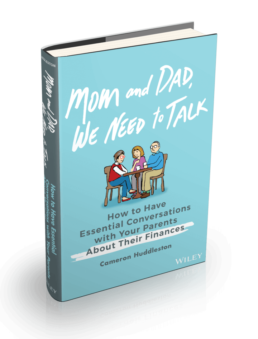Chances are, you know what a will is. This legal document spells out who gets your assets when you die. It also allows you to name an executor to oversee the distribution of your assets and guardians for your children.
If you don’t have a will, your state’s laws will dictate who gets what. That means your home, car, investments or any money in your bank account could go to someone you don’t want to get it. Even your children could end up with someone you wouldn’t have chosen.
Some people go a step beyond a will by creating a living trust. You’re probably thinking those people are the rich and famous. However, trusts aren’t just for the super wealthy. There are benefits of a living trust that make this estate planning tool ideal even for the not-so rich and famous.
Living Trust Basics
Like a will, a living trust allows you to specify who gets your assets when you die. However, a trust can give you a lot more say over when heirs get the assets you’re leaving behind and how they get those assets, said Geoff Madsen, CEO of Independent Trust Company, which provides trust management services.
The primary difference, though, between a trust and a will is that you must transfer your assets to a trust before you die. That can involve changing the title on property deeds from your name to the trust and filling out forms with your financial institutions.
You also have to name a trustee to manage the assets in the trust. “It’s like forming a business entity,” Madsen said. You can name yourself to be trustee while you’re alive then name a successor trustee to manage the trust once you die. The trustee has a lot of responsibilities – including distributing assets to beneficiaries, filing an annual tax return for the trust, ensuring the trust complies with state laws and much more. That’s why it’s important to pick the right person for the job or even consider using a professional trustee service such as Madsen’s Independent Trust Company, which gets a percentage of the trust assets it manages for clients.
Most living trusts are revocable, which means you can make changes to them during your lifetime. An irrevocable trust can’t be changed. But assets in an irrevocable trust can be shielded from creditors (because you don’t own them, the trust does) and the estate tax.
Working with an attorney to create a trust typically costs more than drafting a will. “Having an attorney draft a revocable living trust usually costs about $2,000 to $5,000 — more if you have specific details that need to be handled,” said Dave Hanley, founder and CEO of Tomorrow, which provides life insurance and estate-planning products. Tomorrow and other websites do offer low-cost living trusts that you might want to consider if you don’t have a complicated financial situation. Tomorrow also will email a copy of a trust you create using its service to an attorney for review.
The Benefits of Creating a Living Trust
Clearly, a trust is not cheap. Nor is it necessary for everyone. But a living trust does have benefits that make it worth the extra cost for some people.
Assets in a trust avoid probate: Probate is the legal process of distributing property after someone dies. The length of probate varies by state, but, on average, it takes six to nine months, according to the American Bar Association. The cost of court fees and attorney fees associated with probate also varies by state. In some states, such as California, the cost of probate can be very high because attorneys can charge a fee that is a percentage of the estate going through probate.
Even if you have a will, your estate has to go through probate. But a living trust avoids probate – which is one of the big benefits of a trust. It saves your loved ones time, money and stress, Hanley said.
But if you live in a state where the cost of probate isn’t high, it might not be worth it to create a trust to just to avoid probate. So if an estate planning attorney tries to sell you on creating a trust, ask first how much probate will cost.
A trust can protect privacy: It might not be worth it for you to pay extra to create a living trust and transfer your assets to it just to avoid probate. However, protecting your privacy might be worth the cost of creating a trust.
Although a will becomes public record when it goes through probate, a living trust is never made public. “For me, privacy is worth double the price,” Madsen said. If you don’t want others to know what sort of assets or wealth you have and who gets it once you’re gone, a living trust keeps that information “out of court where craziness can be introduced,” Madsen said. “It takes what can be a powder keg and diffuses it. “
A trust gives you more control over the assets you leave behind: A trust allows you to slowly disburse your assets rather than giving it all in one lump sum. “If you think there might be a chance that a young adult would blow through the money you leave behind for them—even if you intend for it to last for years—setting up a trust may be a good idea,” Hanley said.
Plus, you can use a trust to pass on not just your assets but your values, Madsen said. That’s because you can create the terms and conditions under which your beneficiaries receive the assets in the trust or spend them. So if you want your kids to work and not just live off their inheritance, you could specify that in a trust.
The Drawbacks of Creating a Trust
It’s true that those who are wealthy with big estates are more likely to benefit more from having a trust. It also can be beneficial for people who have property in more than one state or who have very specific instructions about how they want their assets distributed. But not everyone needs a trust because trusts do have drawbacks.
For starters, some of your assets might be able to avoid the probate process without being in a trust. Insurance policies and some retirement accounts can bypass probate if beneficiaries have been named for them (so make sure you name beneficiaries on those accounts). And accounts designated as payable on death can be transferred to beneficiaries without going through probate. If you don’t have many other assets beyond a house, the cost of creating a trust just to avoid probate might not be worth it.
There’s also the cost of using a professional trustee service to manage the trust after you die – which can be necessary if you don’t have a trusted friend or family member who’s capable of serving as the trustee for free.
And if you opt for a revocable living trust for its flexibility, your assets won’t get the same level of protection as they would with an irrevocable trust. “When you place assets in irrevocable trusts, you no longer own them,” Hanley said. That can help shield your assets from creditors and help large estates avoid the estate tax. However, irrevocable trusts require more work to manage, Hanley said. And you can’t make changes to an irrevocable trust once you set it up.
Because you can access assets in a revocable living trust and change the terms while you’re alive to benefit yourself, “that means creditors can come after the assets held within your revocable trust fund should you find yourself in debt,” Hanley said. “It also means that any gains the trust fund incurs over the year will be subject to income tax.”
Deciding whether you want a revocable or irrevocable trust or even if you need a trust can be difficult without the help of an attorney. Ask friends and family for recommendations for an estate planning attorney, or use the National Association of Estate Planners and Council’s database to find an estate planning attorney near you.
For more on estate planning, keep reading to learn what a power of attorney is.
Don't Miss Out! ORDER NOW!
"An excellent step-by-step guide to navigate what can be time-consuming, uncomfortable conversations."
- Michelle Singletary, The Washington Post
Related Posts
May 7, 2025
How to Talk to Your Parents About Their Stuff You Don’t Want
These tactics might get your parents to…

Cameron Huddleston
I am the author of Mom and Dad, We Need to Talk: How to Have Essential Conversations With Your Parents About Their Finances. I also am an award-winning journalist with 20 years of experience writing about personal finance. My work has appeared in Kiplinger’s Personal Finance, Forbes.com, Yahoo!, MSN, and other online and print publications.





Very much needed today more than ever…greed hss reached an all time high .. case in point
.. cnbc has a series called “american GREED” i rest my case.. thankyou